Aiming for enhanced senior years: kazakhstani innovators devise digital test for early detection of dementia
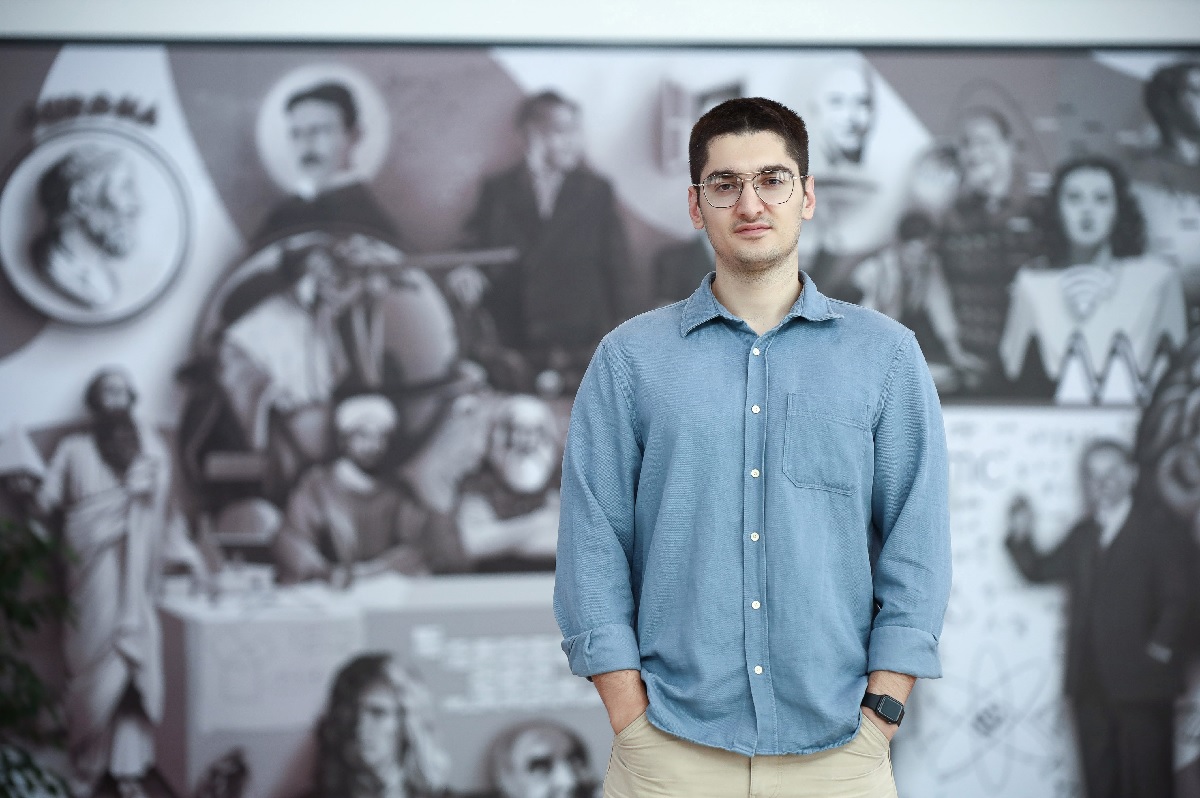
Yussup Tumgoyev from Kokshetau has been involved in entrepreneurship for almost all of his life. In the second year of his university studies together with his friend he was selling chocolates from Europe to students. In the third year of his university studies, he launched the subscription for the delivery of diapers. After that followed the state purchases in the area of hygiene products and the coffee shop in the business center. These endeavors proved more profitable.
Nevertheless, conventional business didn't truly captivate Yussup. He immersed himself in the realm of IT and following a number of setbacks, introduced the initiative myMind. This entails a digital assessment aimed at detecting Alzheimer's disease (dementia) during its initial phases. Collaborating for the Digital Business and Astana Hub joint endeavor “100 Startup Stories of Kazakhstan” Yussup disclosed what directed him towards MedTech, his six-month residence in a hospital within the Almaty region, and his approach to implementing the notion of a virtual hospital.
“As per official statistics, our country has recorded 10 thousand cases of diagnosed Alzheimer's disease. However, we acknowledge that the actual numbers are considerably higher”
– Your first startup was in the FoodTech field. Please share about it.
– During our college days, my friends and I enjoyed going to KFC. The long lines and poor service bothered us, and we thought it would be convenient to have a digital cash register on our phones. In simple terms, you'd scan a QR code, place an order, and pay. To make this happen, we needed to integrate with CRM R_Keeper.
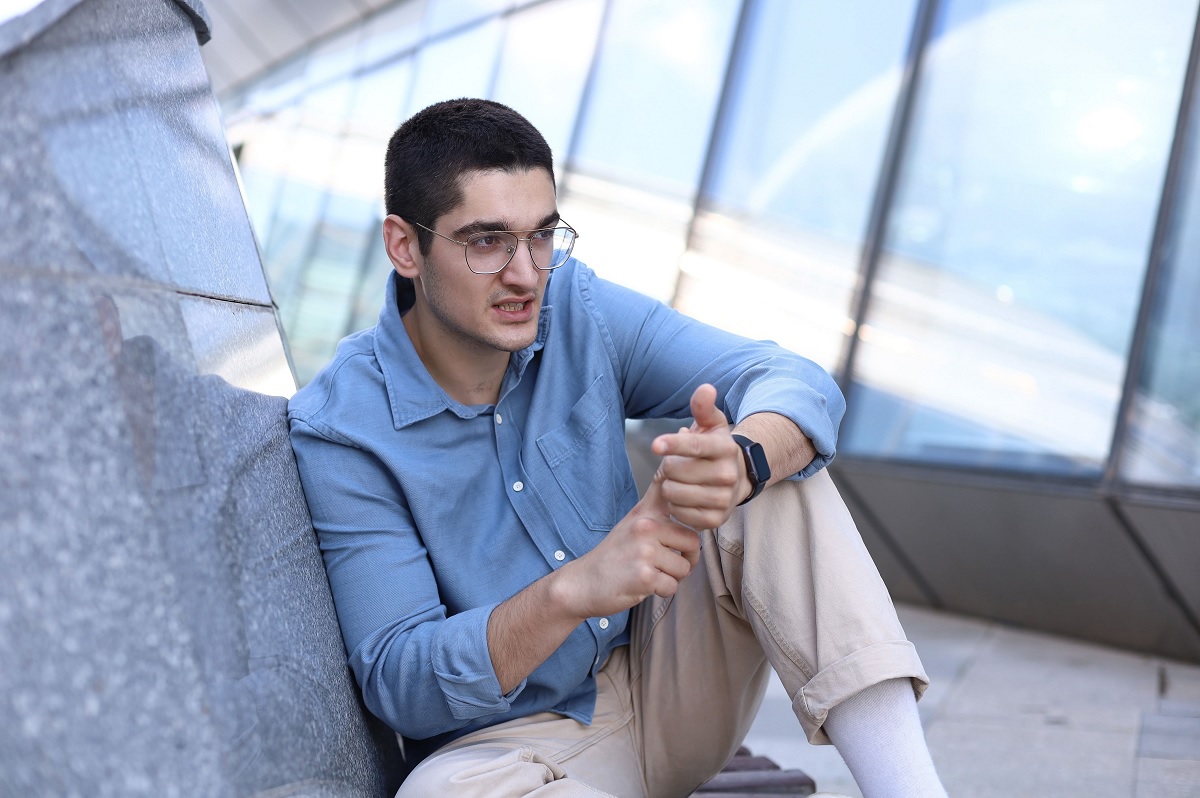
After talking to the cashiers, we gathered data that revealed the financial impact of long lines on the chain. We calculated the losses caused by queues and presented this information to the regional director. He liked our idea and arranged a meeting at the main office in Almaty.
Our experience with KFC also connected us with the operational director of McDonald's in Kazakhstan. They were interested too, but unfortunately, things didn't progress further.
– What was the reason?
– The COVID-19 pandemic hit in March 2020. Because of the lockdown, we were stuck in Almaty and unable to travel. The restaurant industry faced a significant decline during that time. Our discussions with KFC and McDonald's didn't progress as planned. Consequently, we chose to put the idea on hold and transition to a different field.
– Was the shift towards the field of medicine?
– The most obvious choice presented itself. We encountered Seitzhan Sypabekov, who is the head of the Galamat Group, a medical holding. Subsequently, he became our investor, and this marked the beginning of our journey to develop the Covid-19 digital test. After some time, we made the decision to establish the inVisum platform, aimed at remotely interpreting X-ray, computer tomography (CT), and magnetic resonance tomography (MRT) results. In our country, there exists a significant shortage of specialists, with the exception of Almaty and Astana, who possess the capability to provide patients with insights based on their scan outcomes.
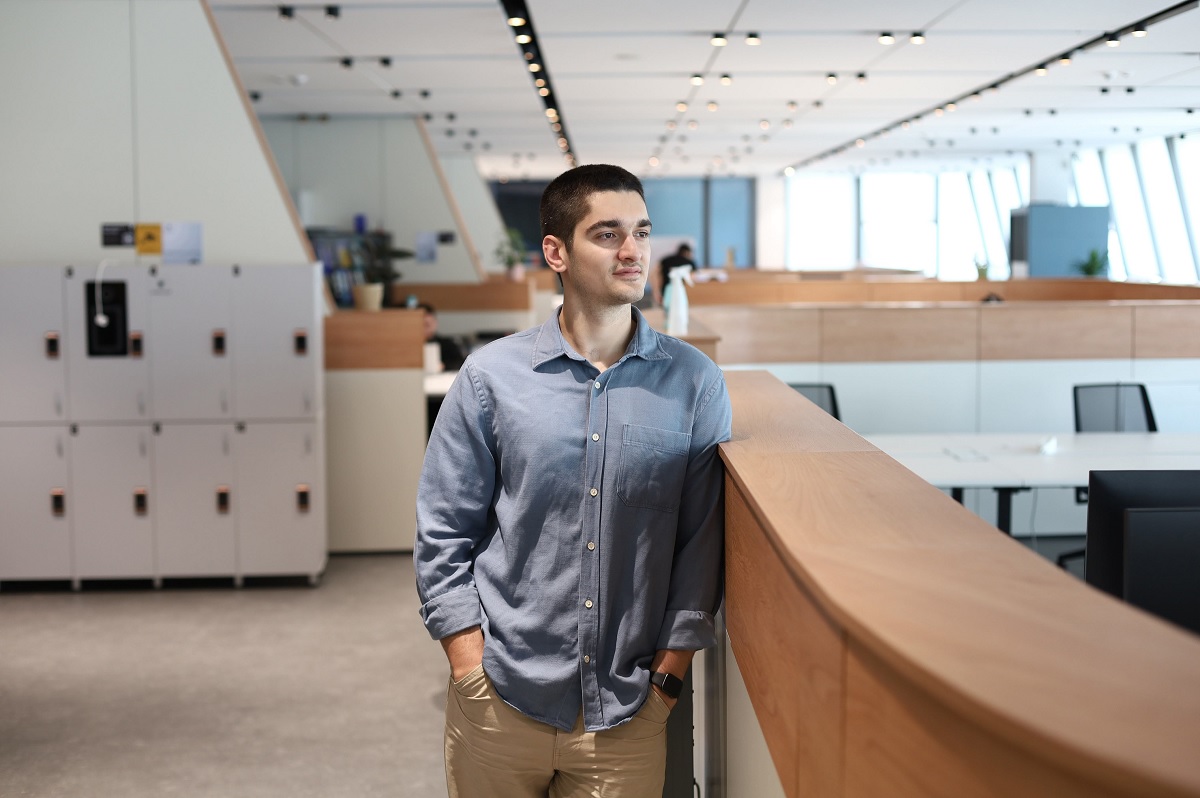
Since none of our team members possessed any relevant experience or expertise, we decided to outsource the platform development to a studio in Almaty. However, their execution was hasty and subpar, leading us to halt the project. In hindsight, I can openly acknowledge that we mishandled the entire situation.
– Given your past experience of failure, what led you to the decision to launch another MedTech startup, especially considering your lack of specialized education?
– Failure is a common occurrence in business, particularly within the IT sector. What matters significantly is the ability to dissect one's errors and progress in spite of them. Furthermore, the presence of our investor played a crucial role. Both the investor and Dr. Zhibek Zholdasova proposed an idea regarding a digital test for detecting Alzheimer's disease.
We constructed this idea upon information sourced from the World Health Organization (WHO) and Alzheimer's Disease International (ADI), using the framework devised by Zhibek Zholdasova. She stands as one of the foremost experts in this field within Central Asia.
– How pressing is the dementia problem in Kazakhstan?
– As per the Ministry of Health of Kazakhstan, official statistics indicate around 10,000 diagnosed cases of Alzheimer's disease in the country. Nonetheless, experts suggest the actual numbers could be significantly greater, potentially reaching around 200,000 individuals.

Considering global statistics, approximately one out of every seven individuals aged 65 or above experiences dementia. These figures were compiled prior to the impact of the coronavirus, which has further influenced cognitive functions and exacerbated the situation. Presently, the age bracket at risk has lowered to 50.
It is important to understand that you can fight dementia only at early detection by slowing down the regress. This gives patients the chance for healthier aging.
It's crucial to realize that combating dementia relies on early detection, which can help slow down its progression. This approach provides patients with an opportunity for healthier aging.
“I initially visited Esik for a week but ended up staying for nearly 5 months. This period marked one of the most challenging phases in my life”
– What is myMind?
– The digital test comprises three sections. The initial section involves gathering risk factors associated with disease development. The second segment consists of cognitive tasks, including memory, numerical skills, and logic assessments. The third part encompasses questions designed to gauge the extent of dementia symptoms. These questions are adjusted based on the responses provided by the patient or caregiver.
The test is accessible via both PCs and smartphones. Nikita Novozhilov, my former schoolmate from Kokshetau, who later became our Chief Technology Officer (CTO), played a pivotal role in developing the product.
– Ensuring the rigor of tests and research is essential for any medical product. How did you resolve this challenge?
– Initially, we evaluated the algorithm by engaging our friends and Instagram followers. We requested them to have their older family members take the test. In total, we conducted approximately 100 tests, through which we identified the initial instances of dementia. However, this process primarily contributed to enhancing the UX/UI of the product, more than refining the algorithm itself.
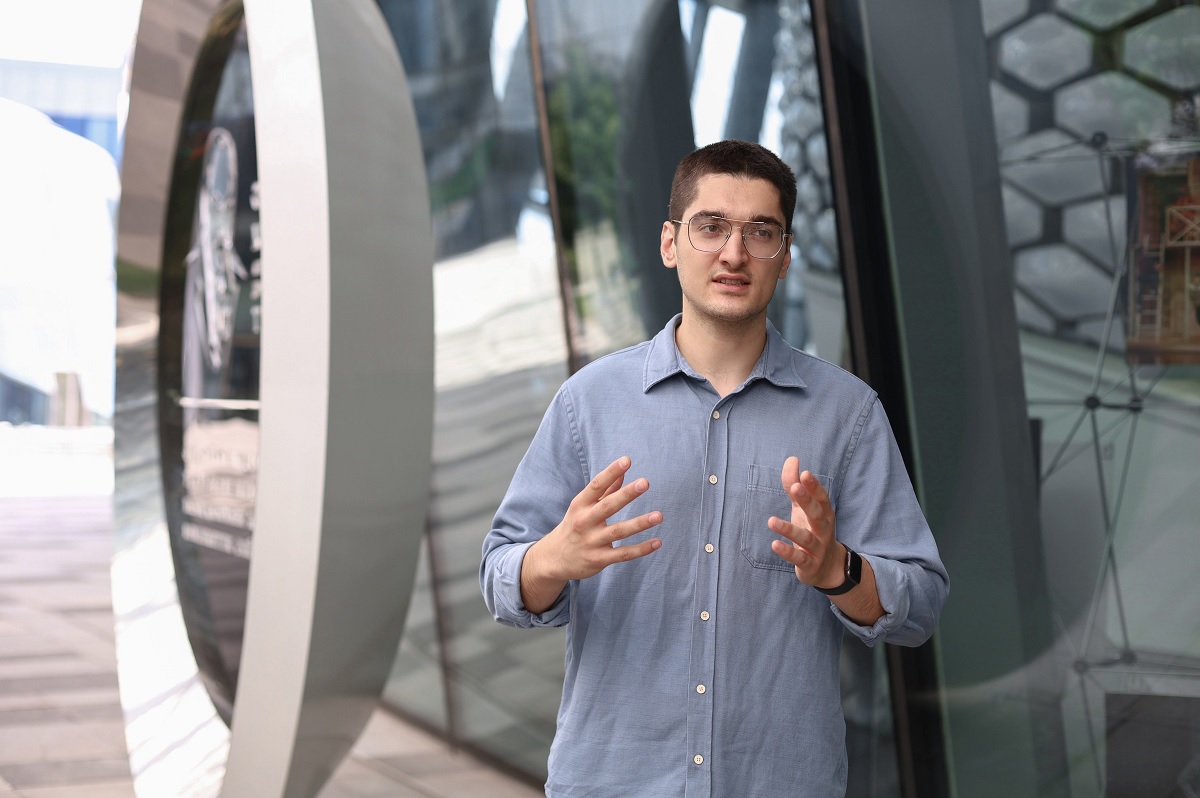
Subsequently, we carried out the initial practical test involving 98 patients under the supervision of Dr. Zhibek Zholdasova in Almaty. The positive outcomes from this test formed the foundation for enhancing the dementia detection algorithms. Additionally, we refined the testing logic.
– However, this alone is insufficient to ascertain the effectiveness of the solution...
– You're correct. Fortunately, luck was on our side. While reviewing the product, we had the fortune of encountering Zhamilya Abeuova, the director of the Enbekshikazakh Multiprofile District Hospital in Esik, Almaty region. Their oversight extends to a population of more than 40,000 individuals aged over 50. This presented us with significant opportunities to thoroughly test the product.
During their research initiative, more than 2,000 patients underwent our test. Notably, half of these tests were conducted under my direct supervision. Furthermore, we provided training to over 150 nurses on how to identify cognitive decline using myMind. I must admit that, personally, this period was among the most challenging for me.
– Why?
– Initially, I faced residential challenges in Esik due to the scarcity of available apartments for rent. The hotel accommodations weren't suitable for my needs, prompting me to opt for the nearest dormitory designated for medical staff. This meant living in Spartan-like conditions: a room with four plain walls, containing only a chair, table, bed, and mattress. There were times when even taking a shower proved difficult. Despite these circumstances, my enthusiasm led me to make a commitment to overcome these challenges.
Simultaneously, I engaged in the Silkway Accelerator program, a collaboration between Astana Hub and Google for Startups. In addition to participating, I took charge of overseeing the research process and supervising the project's technical enhancements. Juggling all of these responsibilities proved to be a formidable task. However, there was a positive aspect to it all – the pressure from these responsibilities served as motivational forces. As a result, I became intimately familiar with the concept of stress.
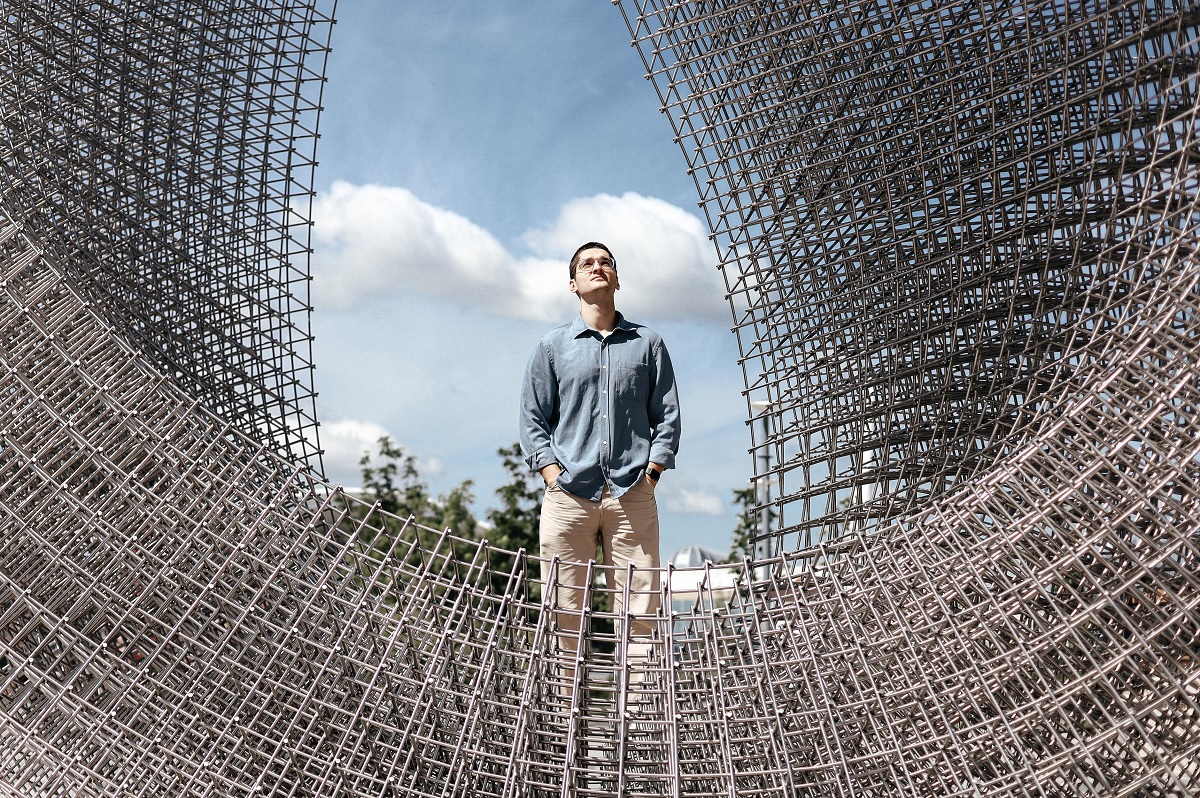
Another challenge arose from the complexity of collaborating with the medical personnel in the middle ranks. Their demanding workloads left them with limited time, energy, and motivation to embrace new concepts. This resistance posed a significant hurdle for us.
We managed to overcome it by streamlining the product to its simplest form. I recall a particular night when I contacted our CTO and conveyed, "Nikita, strip it all down! Let's have just three buttons on the screen: 'Provide a Try,' 'Take Test,' and 'Display Results'."
Because of the strong support I received from the Eisk hospital administration and my team, I was able to manage and overcome all of these challenges.
– Did the difficulties justify the effort?
– We successfully cut down the test-taking time significantly. The initial version of the product required 45 minutes for the test, while the second version only took 10 to 15 minutes. We removed extra questions and designed the algorithm to adapt, so it only presents the essential questions.
Currently, we're focusing on the third integration. We're in the last steps of developing the screening test, which now only takes 5 minutes to complete. This has the potential to greatly minimize time and resources. Based on data, only 14% of participants need to undergo the complete testing process.
“We have designed a product with the goal of enabling even a general physician to identify signs of dementia”
– How do you intend to transform myMind into an all-encompassing virtual hospital, as you mentioned earlier?
– Our end product is designed to facilitate dementia detection and patient interaction for general physicians.
Initially, the system features tests and instructions that are intuitively comprehensible. In most instances, patients can independently complete these tests without the need for medical staff assistance.
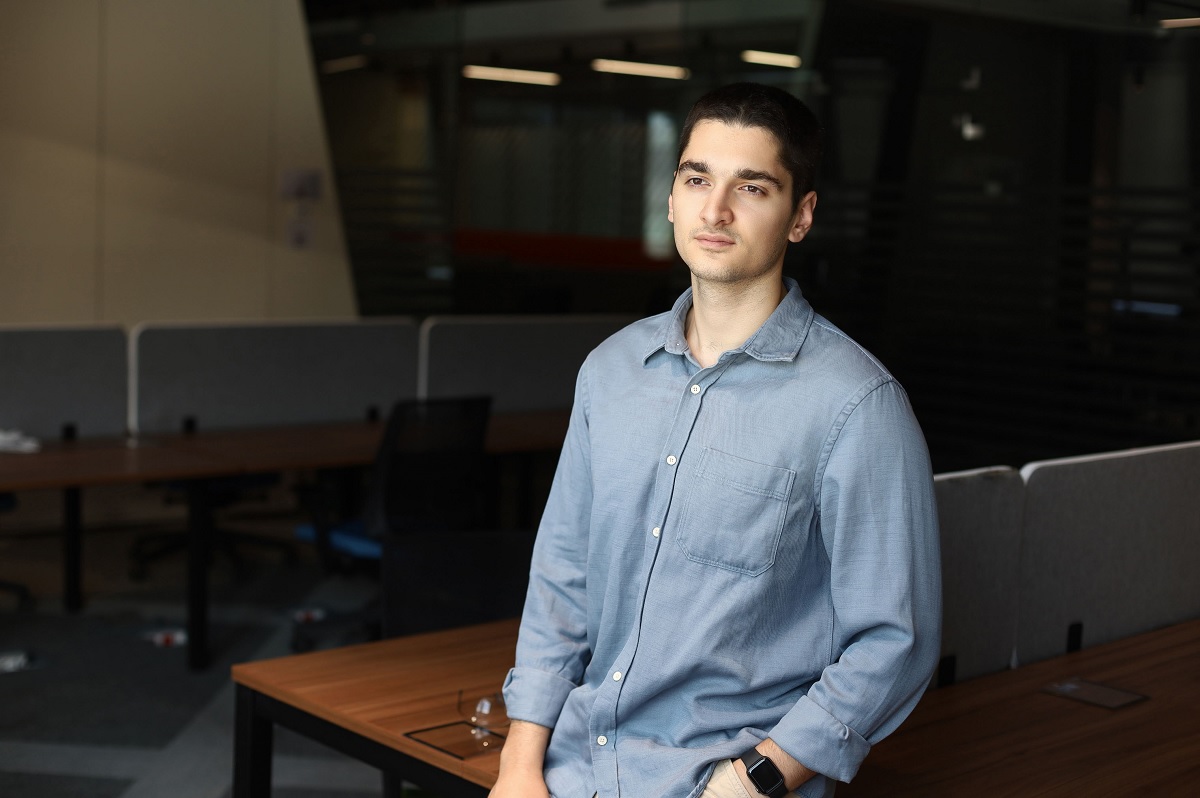
Additionally, the platform offers a straightforward, step-by-step guide for conducting patient assessments. Medical professionals simply need to follow a few button clicks and interpret the results.
Thirdly, the system offers intelligent suggestions and explanations, citing the sources of information. This occurs throughout both the testing and result interpretation phases.
Fourthly, the system automates the task of organizing medical records and managing other healthcare documentation. As an example, it can even generate necessary test prescriptions if required.
Lastly, we will provide continuous support throughout the disease diagnostics process. The doctor's role will involve reviewing the results and refining the diagnosis and recommended treatment. As a result, the specialist will only need to allocate up to 20 minutes per patient, a significant reduction compared to the conventional 60 to 90-minute appointments.
– Is it possible for software, including AI-based solutions, to prescribe treatments that necessitate a personalized approach?
– In the conventional approach, dementia diagnosis involves conducting patient interviews and cognitive assessments. These processes encompass a range of questions and tasks designed to assess the presence of cognitive impairments and determine the disease's stage. Both of these stages have now been entrusted to myMind.
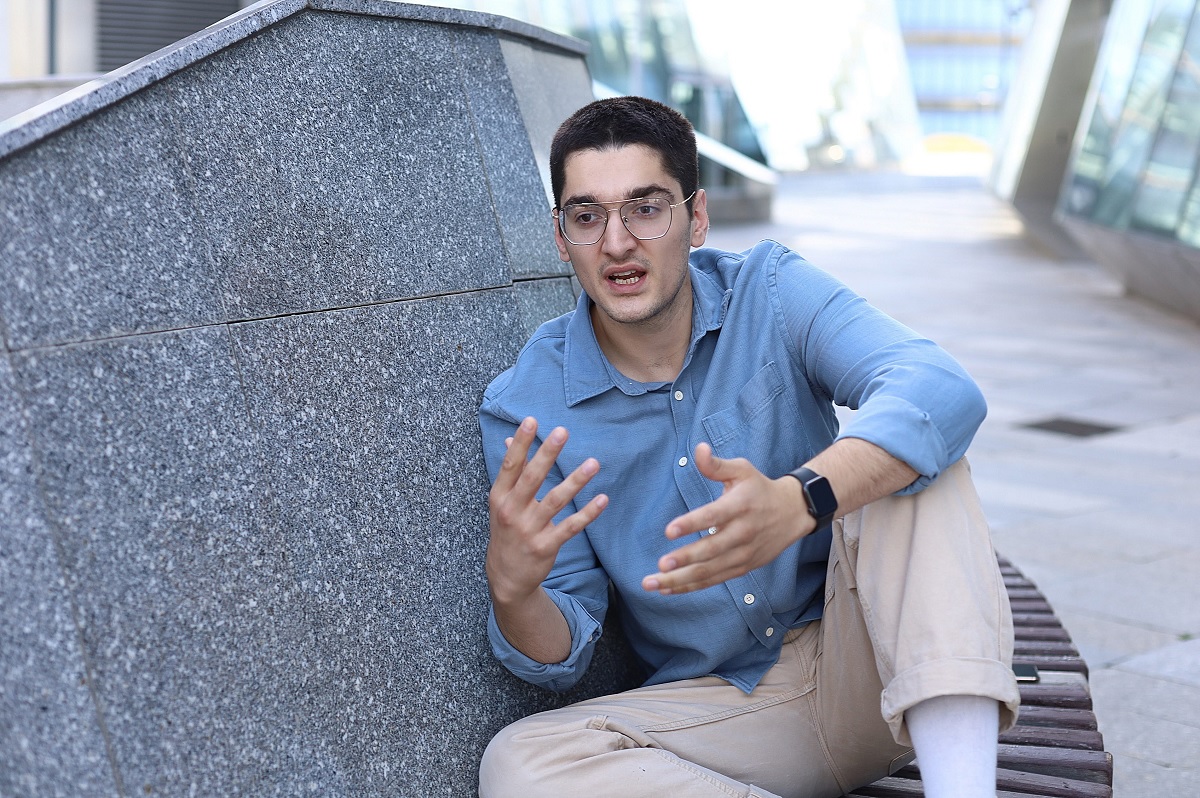
In all circumstances, the ultimate decision rests with the medical professional. The virtual hospital primarily offers guidance and functions as an informational platform.
– What if the patient is unable to complete the digital assessment autonomously?
– Typically, these patients are attended to by their family members, who are present around the clock and are familiar with the patient's condition and experiences. Consequently, they can respond to the test questions based on their observations. This approach is indeed employed in conventional methods of dementia detection.
Furthermore, during our pilot study in Esik, we closely monitored the patient's reaction to the test. Drawing from the feedback received, we streamlined and simplified the process as much as possible. At this point, our focus lies in establishing a rapid patient screening mechanism and a step-by-step testing algorithm for healthcare professionals. We are already progressing in this trajectory.
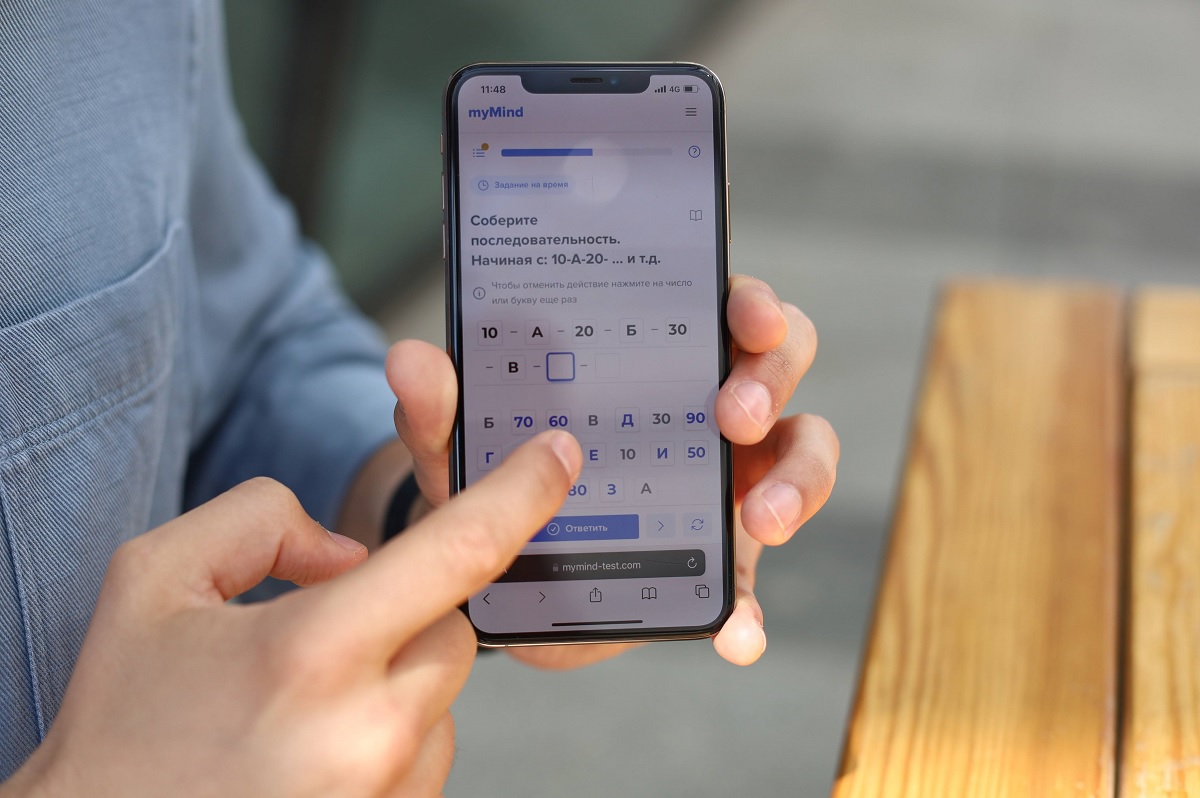
«Our ultimate objective is the launch in the United States»
– Apart from the Esik hospital, where else is myMind currently being utilized?
– Following our achievement in Esik, we received inquiries from a hospital in the Zhambyl region. Subsequently, there was expressed interest from Aktobe as well. Presently, we have established a monetization model through these collaborations, charging a fixed fee for each administered test.
We dedicated an extended period to refining the product based on feedback, without aggressively pursuing monetization. In the field of medicine, this cycle tends to be considerably more prolonged.
It's worth mentioning that we've already held a meeting with the Deputy Minister of Health. He proposed implementing our solution nationwide in Kazakhstan to screen individuals at risk. However, we temporarily halted this collaboration as our system and team aren't yet equipped to handle such a substantial demand.
Presently, we're gradually testing international markets and getting ready for the full monetization phase of our product.
– Are there challenges you encounter when operating within the B2G sector in Kazakhstan?
– I wouldn't necessarily characterize it as such. However, it's important to note that widespread deployment of our tests throughout the country necessitates robust scientific research with substantial evidence. It's only following this that we can approach the Ministry of Health and engage in negotiations.
I perceive two potential approaches for engaging with the B2G sector in Kazakhstan. The initial approach involves the Ministry of Health mandating the utilization of myMind for screening individuals aged 50 and above across all hospitals. The second option entails seeking approval from healthcare administrations in each region. Currently, we are pursuing this second avenue and observing initial outcomes.
Overall, we are prepared to reach out to both state and private hospitals. Once the product is fully developed, our intention is to vigorously expand within Kazakhstan and beyond its borders.
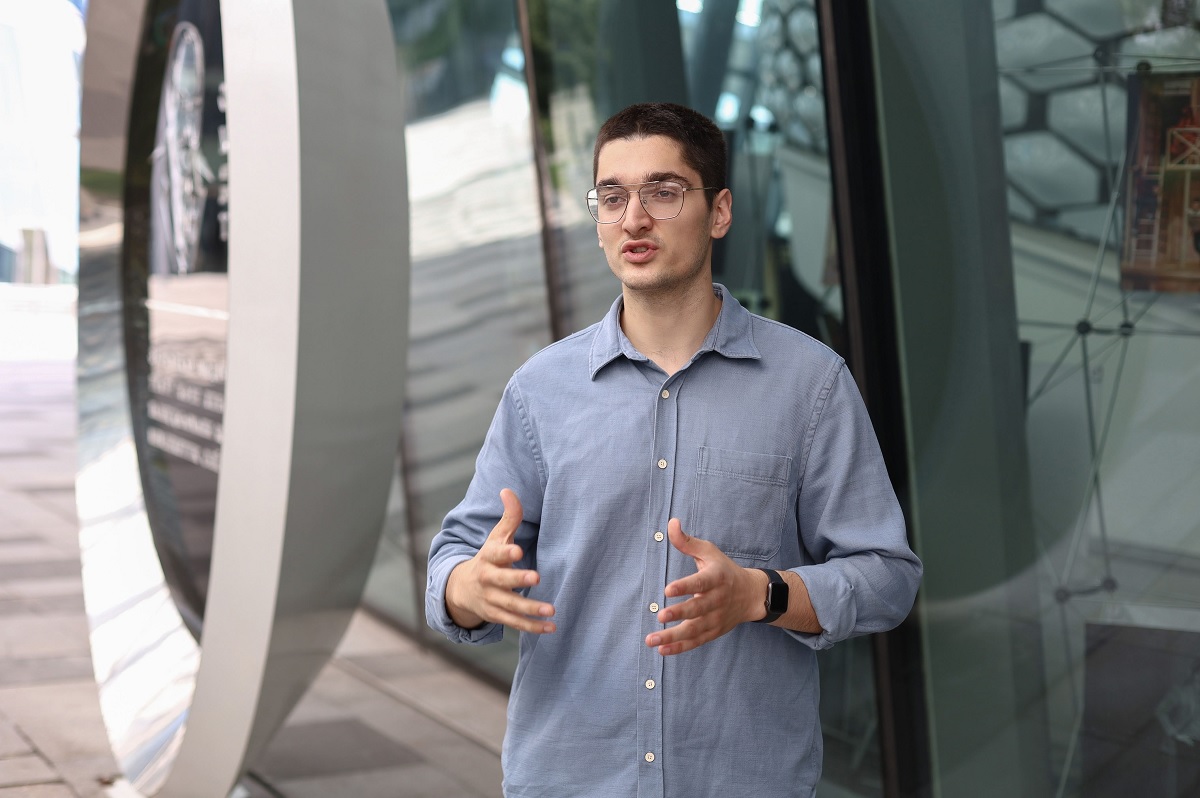
– What other locations are you considering for the launch of myMind?
– The Silkway Accelerator, facilitated by Astana Hub and Google for Startups, provided valuable assistance in determining the ideal market for our scaling efforts. Through this program, my team and I were able to enhance our comprehension of the geographical boundaries within which the project can be introduced.
Throughout this endeavor, we had the opportunity to engage with Cloud Solutions, a company based in Saudi Arabia. They specialize in providing technical support for one of the prominent hospital chains in the MENA region - Dr. Sulaiman Al Habib Hospital. They expressed a positive interest in our solution and are prepared to integrate it into their medical information system.
– In order to extend into Saudi Arabia and other MENA countries, it's undoubtedly essential to acquire the necessary licenses and certifications. Could you provide an update on progress in this direction?
– We decided to opt for a different strategy and make a slight pivot.
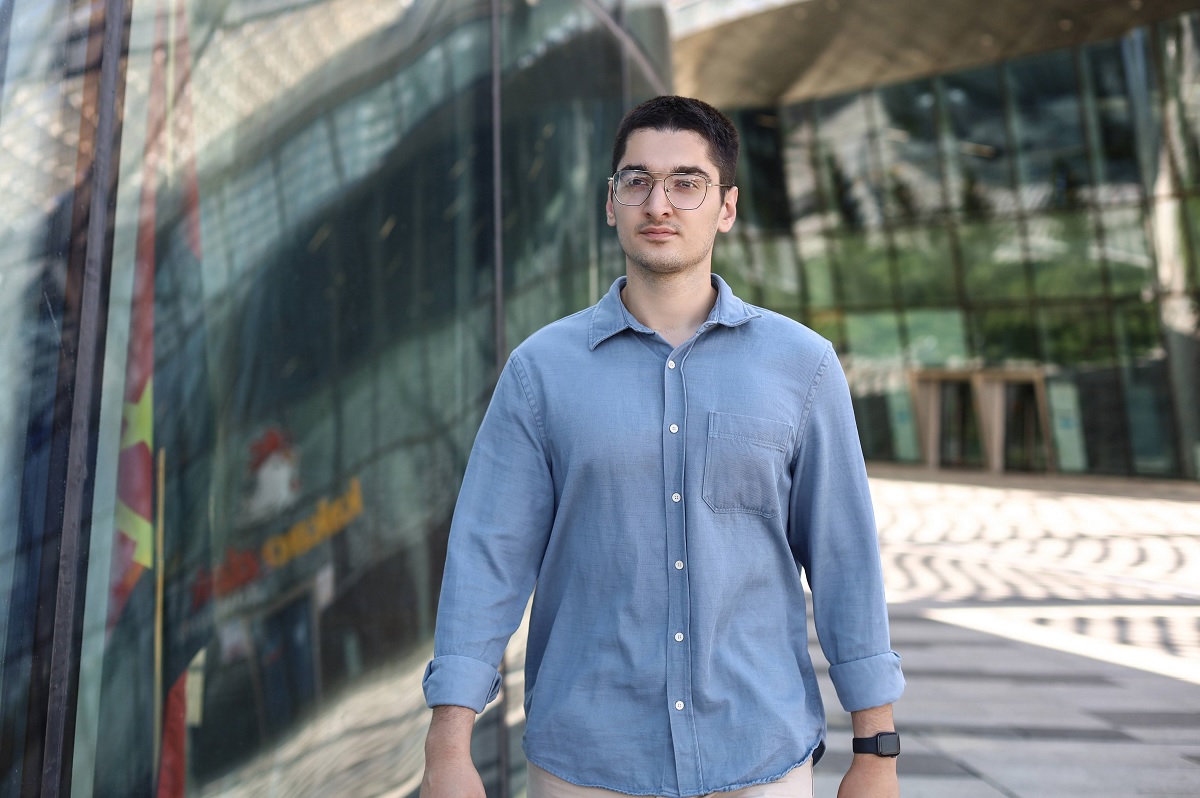
Presently, we are offering not just the algorithm and its validation, but rather expertise in dementia detection utilizing our digital platform, built upon established cognitive tests. The assessment of cognitive decline relies on the widely recognized Montreal Cognitive Assessment (MoCA) test. myMind facilitates the collection of patient symptoms and subsequently furnishes the doctor with a comprehensive patient record, complete with explanations and references to supporting evidence sources. In a way, we are transitioning diagnostics from offline to online, allowing doctors to confirm diagnoses with minimal patient interaction required.
This approach eliminates the need for extensive documentation collection.
Our ultimate aim is to launch in the USA. However, being a startup, our plans may undergo multiple revisions.


